News
14.01.2026
Relating language curricula, tests and examinations to the CEFR (RELANG): national training workshop (20-21 November 2025, Brussels, Belgium)
ECML-EC training workshop for Belgium
Local organiser: Fauve Van den Berghe, Department of Education & Training (Flemish Government)
ECML experts: José Noijons (the Netherlands), Gabor Szabo (Hungary)
Participants: 29 teachers and teacher trainers
During the RELANG training workshop on 20-21 November 2025, participants learned how to link descriptors for different skills to the levels of the Common European Framework of Reference for Languages (CEFR). The workshop also covered how to create valid tasks for receptive and productive skills for different CEFR levels. The workshop may be useful for teachers, language coordinators, educational supervisors, teacher trainers, test developers, etc.
More information about RELANG can be found here, along with a number of interesting ECML materials. Subscribe to the ECML's European Language Gazette for fascinating facts and activities related to language teaching.
Fauve Van den Berghe, local coordinator, 16 December 2025
ECML project website: RELANG, ECML-EC cooperation agreement 2025 "Innovative methodologies and assessment in language learning"
12.08.2025
DECODE network meeting: discussing the importance of developing competences for democratic culture (CDC) in young learners through language education
Four DECODE project team members and their ECML consultant met with 19 teacher educators, teachers and researchers at the network meeting which was held at the ECML in Graz, Austria, on 24-25 June 2025. The participants were from Belgium, Bosnia and Herzegovina, Croatia, Germany, Greece, Ireland, North Macedonia, Slovenia, Spain, Sweden, and Switzerland.
During the two-day meeting, participants explored how to foster competences for democratic culture (CDC) in young learners through language education. On the first day, the team introduced the CDC model and discussed challenges in language education, the role of CEFR tools, and principles for developing CDC-related materials. A template for CDC materials was presented, and participants shared best practices and identified teachers’ needs. On the second day, they collaborated in groups to create and present initial CDC teaching materials, offering feedback on the template. Five of the network participants also shared highly interesting testimonials (see below) about CDC’s relevance in their professional contexts and the value of the DECODE project. The meeting strengthened understanding of CDC and highlighted the importance of collaboration for successful implementation of the DECODE project.
Authors: Emina Jelešković, Martina Kramar
- ECML project website “Developing competences for democratic culture for young learners through language education” (2025-27) (available in English and German): www.ecml.at/decode
- Video testimonials of network participants from Bosnia and Herzegovina, Greece, Germany, Ireland, and Sweden: see Recent developments
08.04.2025
National Training Workshop “Using ICT in support of language teaching and learning (ICT-REV)” (1-2 April 2025, Brussels, Belgium)
ICT in language teaching and learning and beyond!
For many years now, teaching professionals have been aware of the use of ICT in teaching practices. This awareness has grown still further since the Covid pandemic, sometimes leaving good teachers at a loss as they seek to retrain or even leave the profession prematurely. A training workshop of the kind offered by ICT-REV has numerous benefits, which have been fully borne out by the success of this recent workshop in Brussels.
Through its training and consultancy activities, the ECML offers a wide range of opportunities for high-quality training to teaching professionals. Its workshops, based on the practical use of pedagogical and didactic tools, enhance the professionalism of teachers who all too often feel left alone when it comes to designing their courses to meet local standards. The professional development and pedagogical skills of teachers are an asset in fostering education systems that encourage the appropriate use of tools in their daily context. There are many AI-related tools, but their appropriate use often remains a mystery and can prove discouraging.
This training encourages a diversification of approaches and a deepening of students' learning. By making it dynamic and interactive it captures their attention and promotes concentration. Young people today are very often connected but often do not know how to make intelligent use of artificial intelligence tools. Their teachers can be destabilised by the huge range of tools available, how to use them and how to select wisely from what is available online.
Another advantage is that educational teams with similar backgrounds can meet up, not only to exchange ideas and experiences, but also to collectively build on existing good practice. Often, a professional network is created through the establishment of useful connections for the development of teaching tools and materials.
The participants systematically highlight the dynamism and enthusiasm of the moderators, who make this training lively, interactive and varied, and greatly appreciate the opportunity to benefit from their expertise.
Karine Dekeukelaere, local coordinator
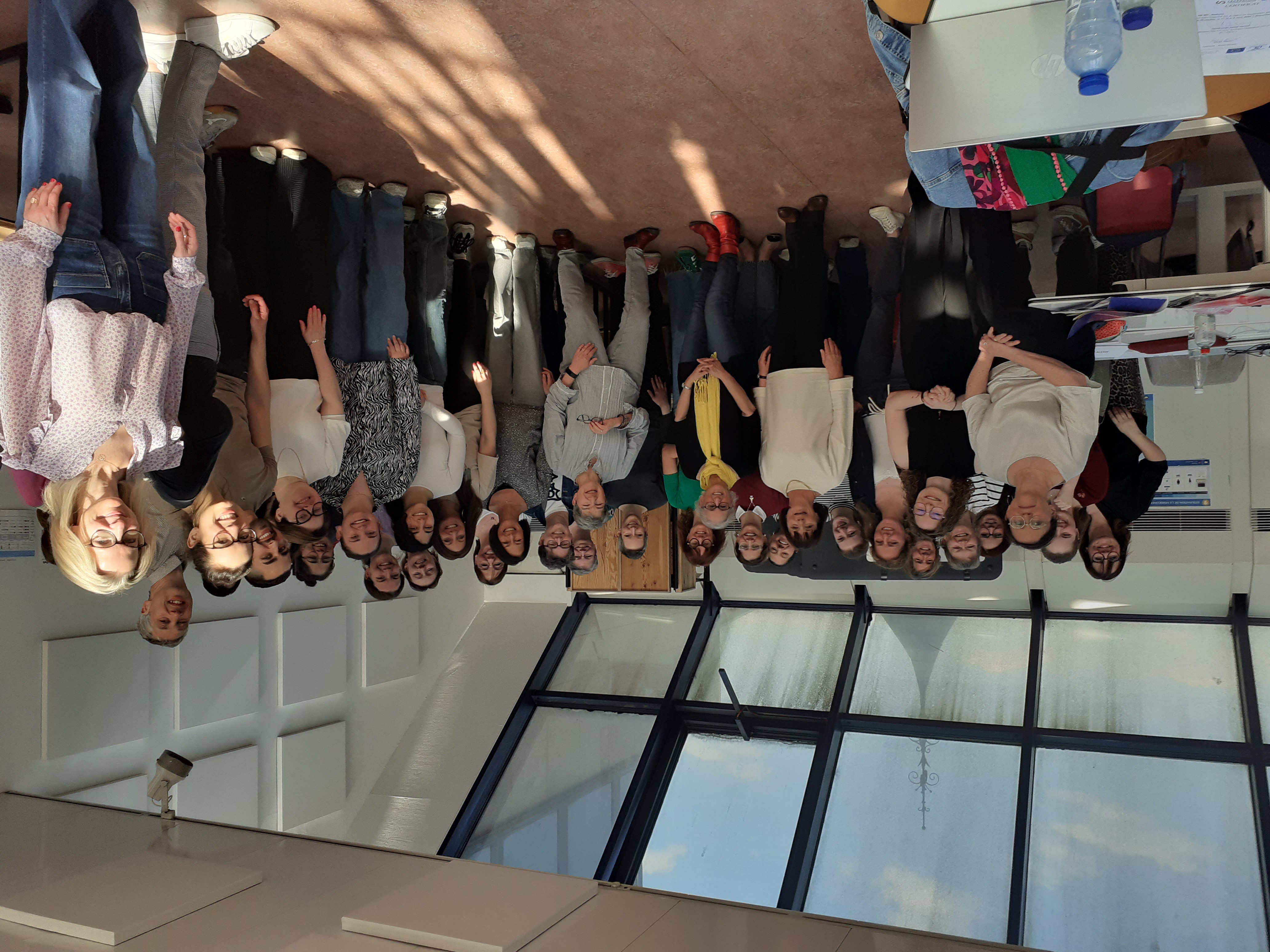
21.11.2024
National training workshop: Relating language curricula, tests and examinations to the CEFR (RELANG) (16 – 17 October 2024, Brussels, Belgium)
Local organiser: Fauve Van den Berghe and Wouter Cambré, Department of Education & Training, Ministry of Education, Government of Flanders
ECML experts: Rita Jukneviciene, Lithuania; Jana Beresova, Slovak Republic
Participants: 37 (language testers and examiners, item writers, teachers and teacher trainers, curriculum developers)
On October 16 and 17, 2024, an enthusiastic group of teachers, pedagogical supervisors, test developers and teacher educators participated in the inspiring two-day workshop “Relating language curricula, tests and examinations to the Common European Framework of Reference for Languages (RELANG)” of the European Centre for Modern Languages (ECML). Participants were introduced to the principles of valid and reliable language testing based on the CEFR. In the workshop, they learned about the construction of different item types, the stages of test development and test-taking, the collection and analysis of test data and also about ways to link tests and exams to (the levels in) the CEFR.
You can find more information on the theme RELANG here, as well as a number of interesting ECML materials. Subscribe to ECML’s European Language Gazette for interesting facts and activities on language teaching.
Fauve Van den Berghe and Wouter Cambré, local coordinators, 29 October 2024
ECML project website: RELANG, ECML-EC cooperation agreement 2024 "Innovative methodologies and assessment in language learning"
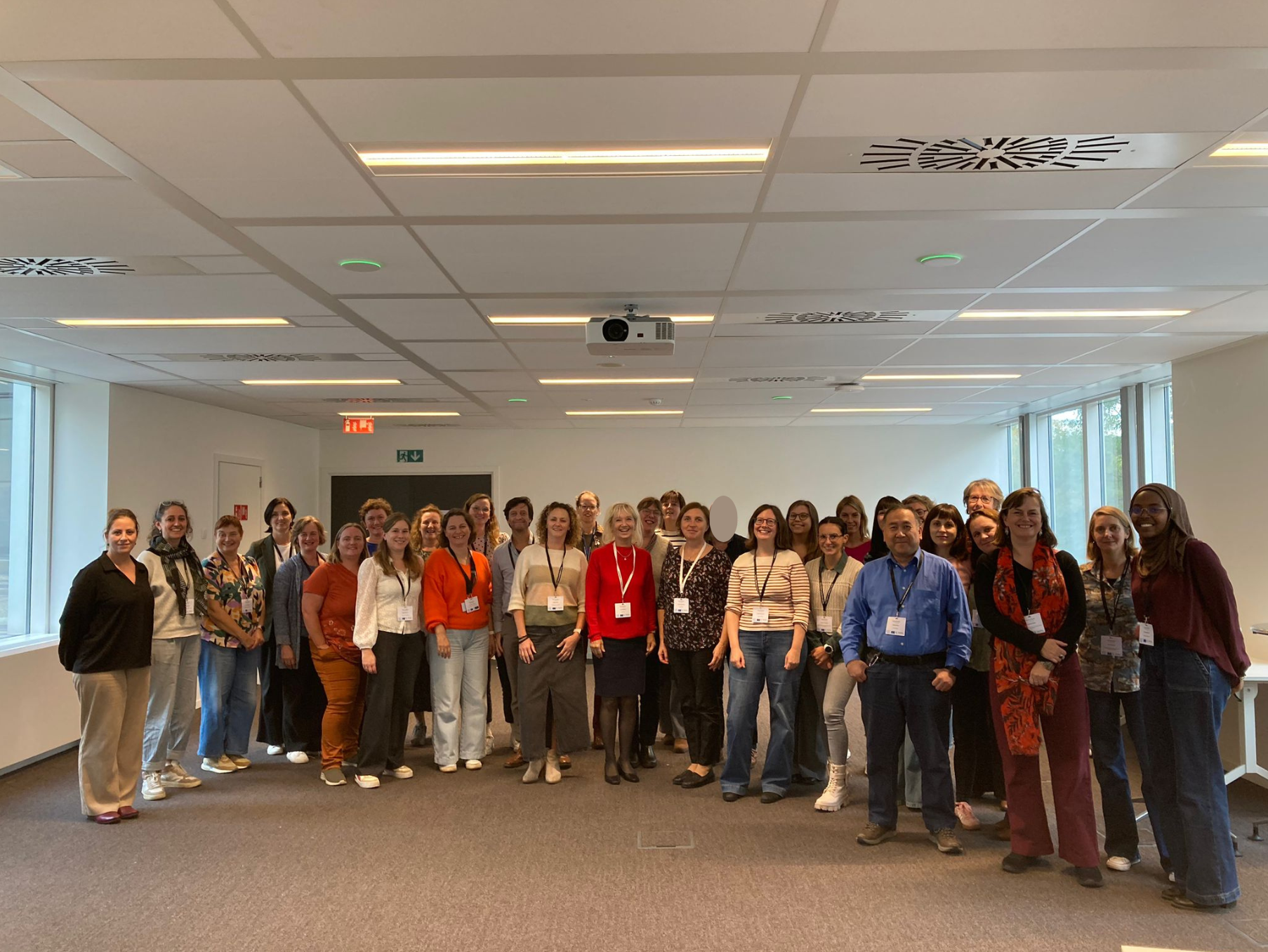
17.10.2023
National training workshop "Supporting Multilingual Classrooms" (4 – 5 October 2023, Brussels, Belgium)
Local organisers: Karine Dekeukelaere, Fédération Wallonie-Bruxelles
ECML experts: Catherine Carré-Karlinger, Austria; Françoise Hänggi, Switzerland
Participants: 27 (foreign language teachers/teachers of other subjects/teacher educators, teachers of the language of schooling, school administrators / leaders / school advisers)
“Our regions are welcoming more and more migrant populations. This situation is a source of enrichment, but it is also a destabilising factor for the society, including in schools. The young people attending these schools need special, high-quality schooling to give them the best possible opportunities and to support them in their efforts to integrate socially and academically. These are the challenges that schools and teachers must overcome by being well equipped.
The workshops offered by the ECML are led by high-quality experts keen to share their knowledge and know-how in this field. The workshops are constructed in such a way as to guarantee a progression in thinking, enabling all participants to transfer the ideas presented to their own school reality. This activity is facilitated by the targeted participation of several members of the same school. This is an asset and contributes to the implementation of a more harmonised and shared policy of welcome and support in the school.
The large number of concrete examples and the group discussions add practical value to the work carried out. By allowing participants to take the time to reflect in a comfortable setting, teaching tools can be developed. We can't afford to miss out on this offer.”
Karine Dekeukelaere, local coordinator, 9 October 2023
ECML project website: Supporting multilingual classrooms – EU-ECML cooperation agreement 2023 "Innovative methodologies and assessment in language learning"
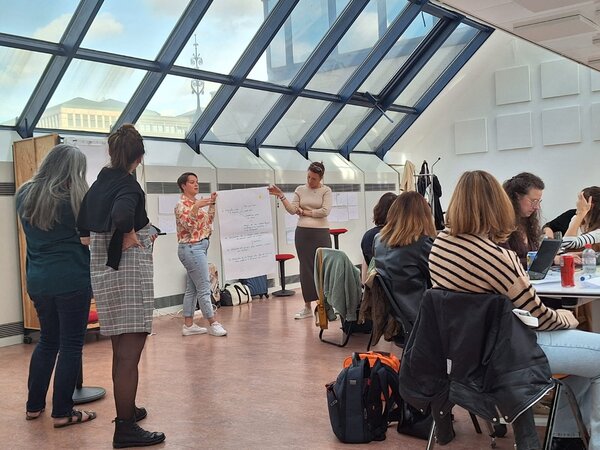
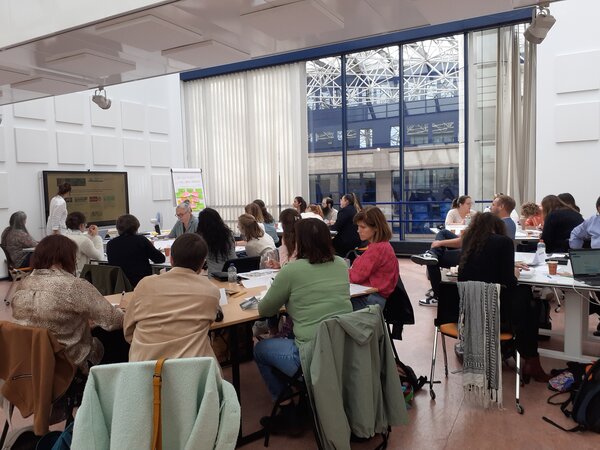
22.05.2023
ECML training and consultancy event in Belgium : A ‘Pluriliteracies’ approach to language teaching and learning (26-27 April 2023, Brussels)
Date and venue: 26-27 April 2023, Brussels, Belgium
Local organisation: Karine Dekeukelaere, Fédération Wallonie-Bruxelles
ECML experts: Frédéric Taveau and Dunja Chamberlain, Switzerland
Participants: 38 CLIL language and subject teachers (primary and secondary levels), pedagogical advisors, subject and language inspectors, CLIL professor at university level
Language immersion teaching (CLIL) is very popular in Belgium, with many young people wanting to enrol. However, they run the risk of being turned away, on the one hand, because places are limited and, on the other, as there are too few teachers. In addition many of the teachers who have embarked on this pathway are faced with the challenge of preparing a variety of materials to help their young audience to grasp not only the language of instruction, but also the content of the subjects studied. School audiences also come from diverse cultural and linguistic backgrounds. However, this challenge can become an asset when it comes to promoting the language of schooling, the language of the 'Language Immersion' class and the language(s) acquired in the home environment, by promoting pluriliteracies.
Thanks to the two-day workshop, moderated by ECML experts, the teachers, teacher trainers, educational advisers and inspectors present were able to improve and strengthen the quality of their interventions through a dynamic supported by the sharing of practical tools, illustrative videos, in-depth explanations of the theory, and exchanges between professionals around this teaching. And, above all, a pro-active approach to discovering the benefits of pluriliteracies.
Karine Dekeukelaere based on the presentations of Dunja Chamberlain and Frédéric Taveau
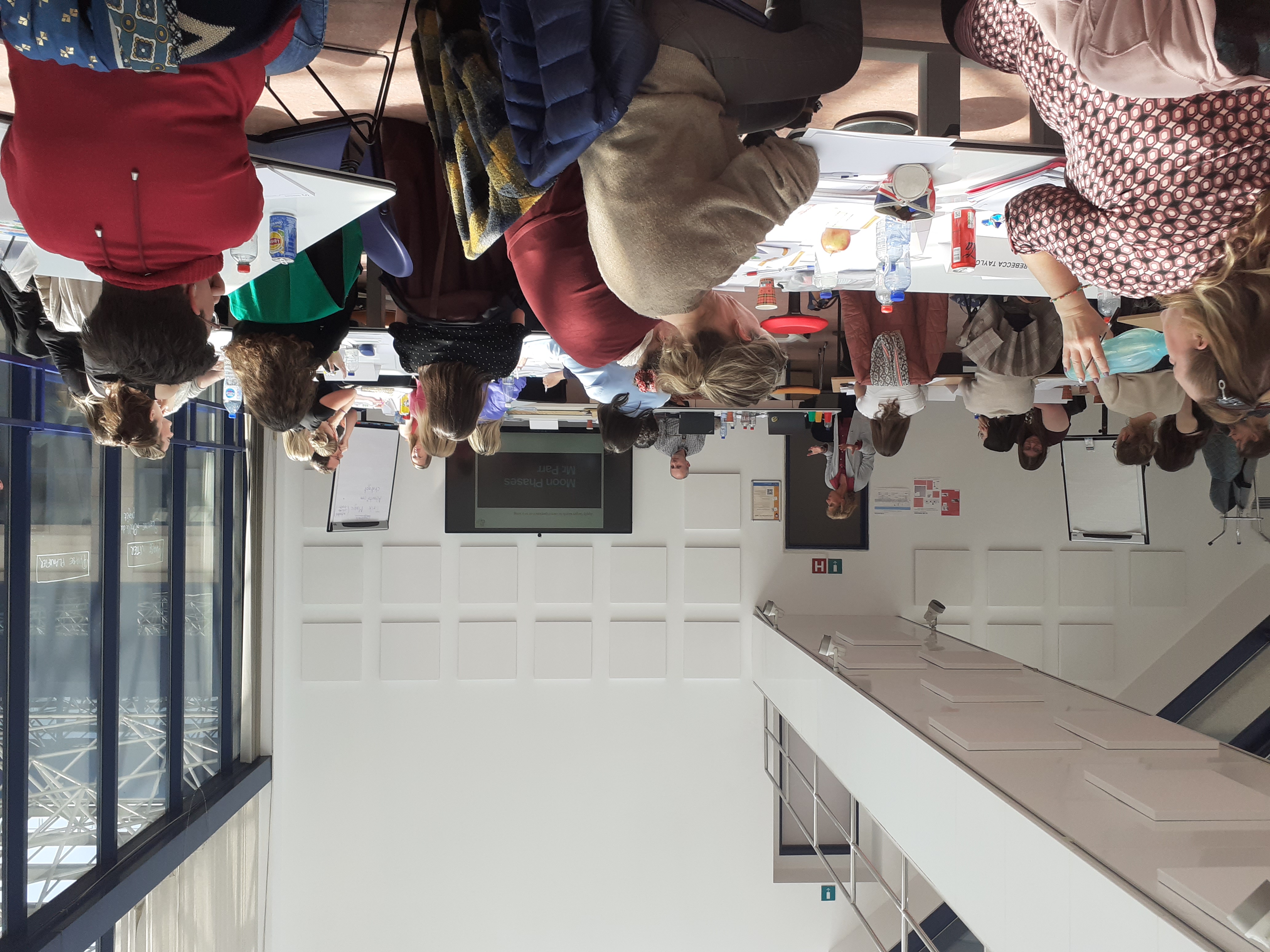
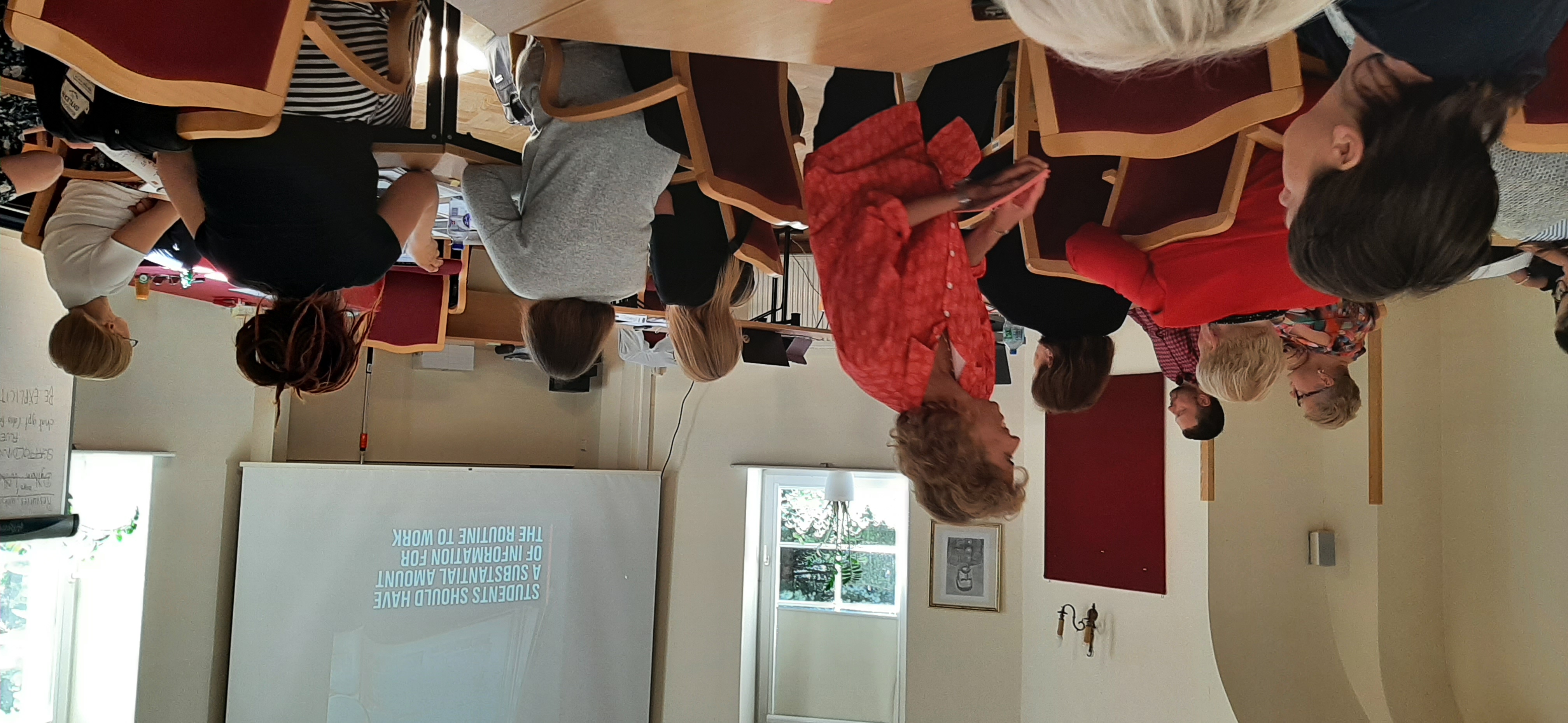
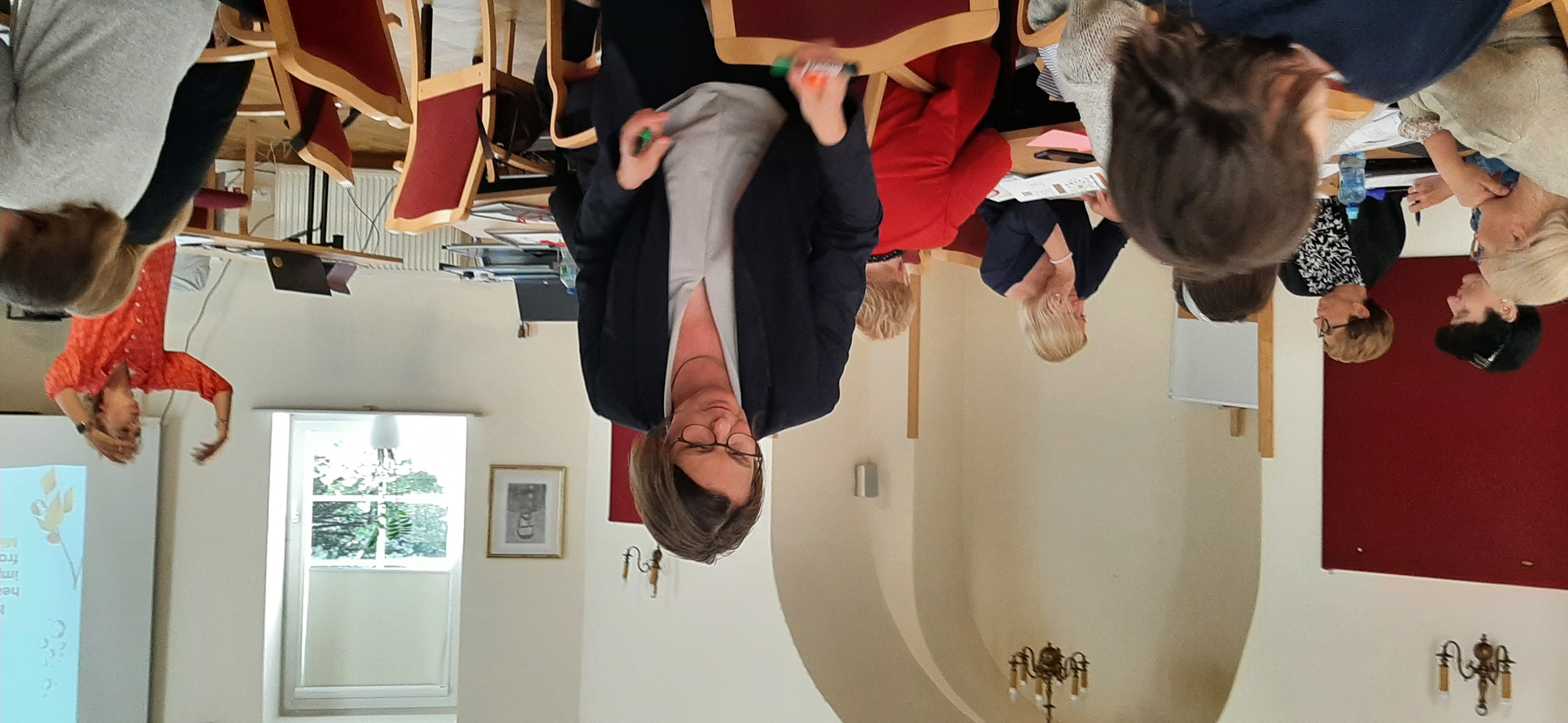

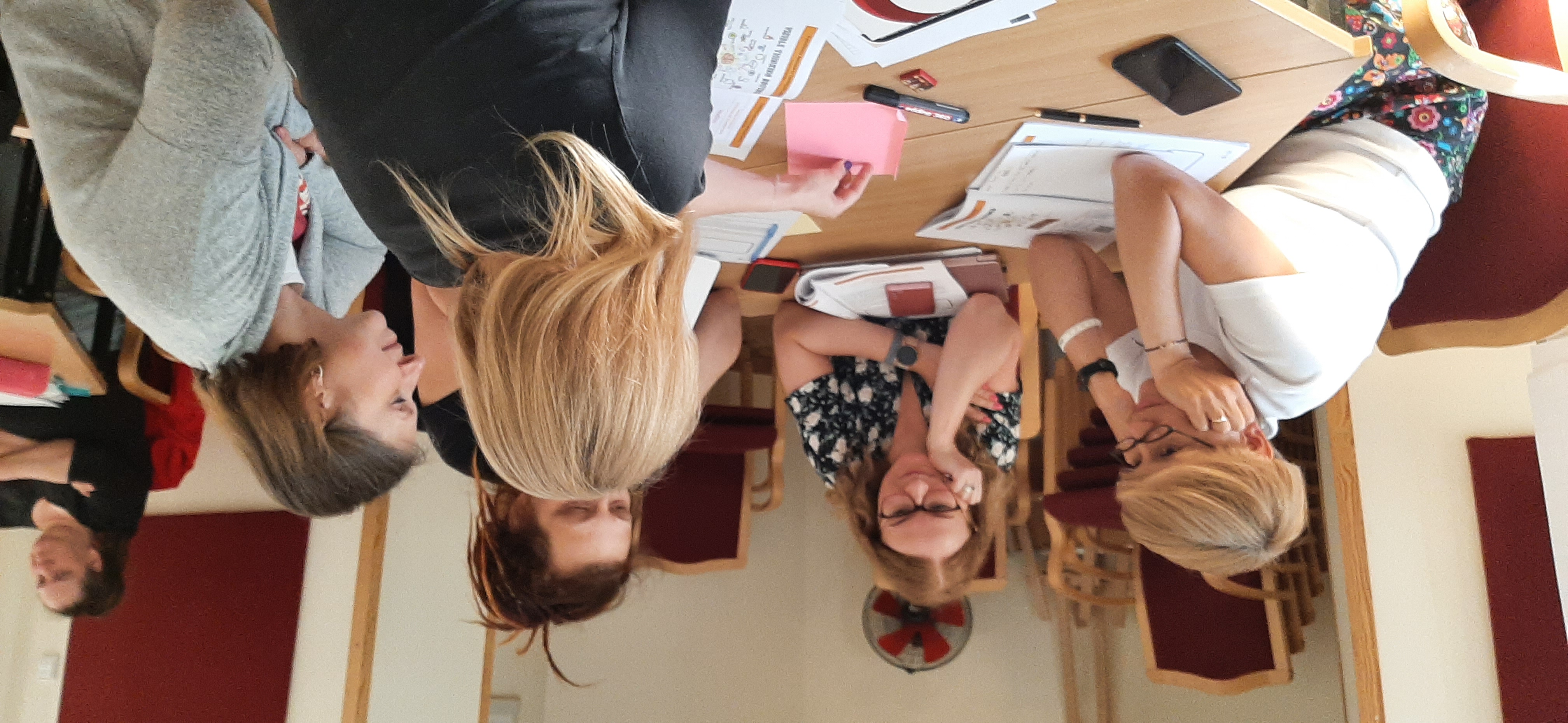
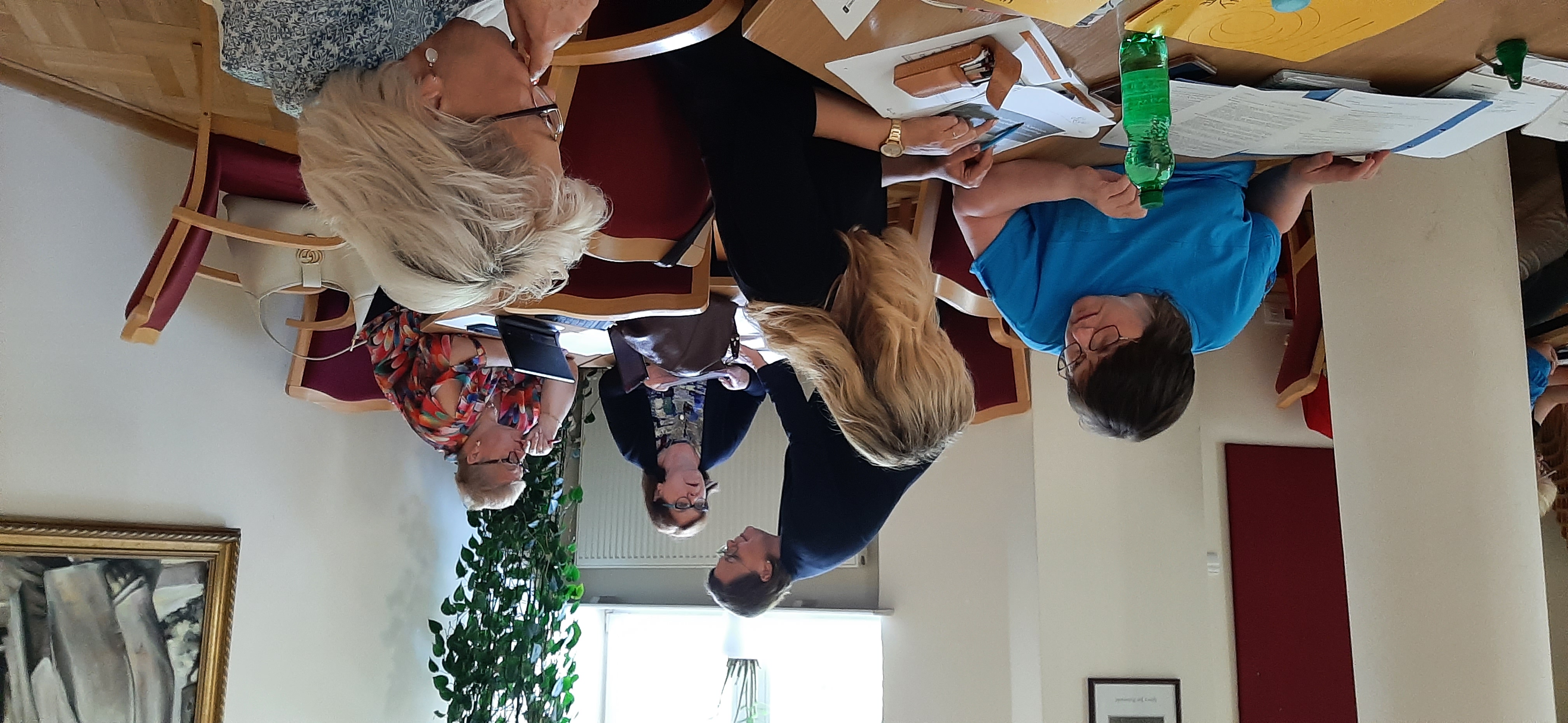
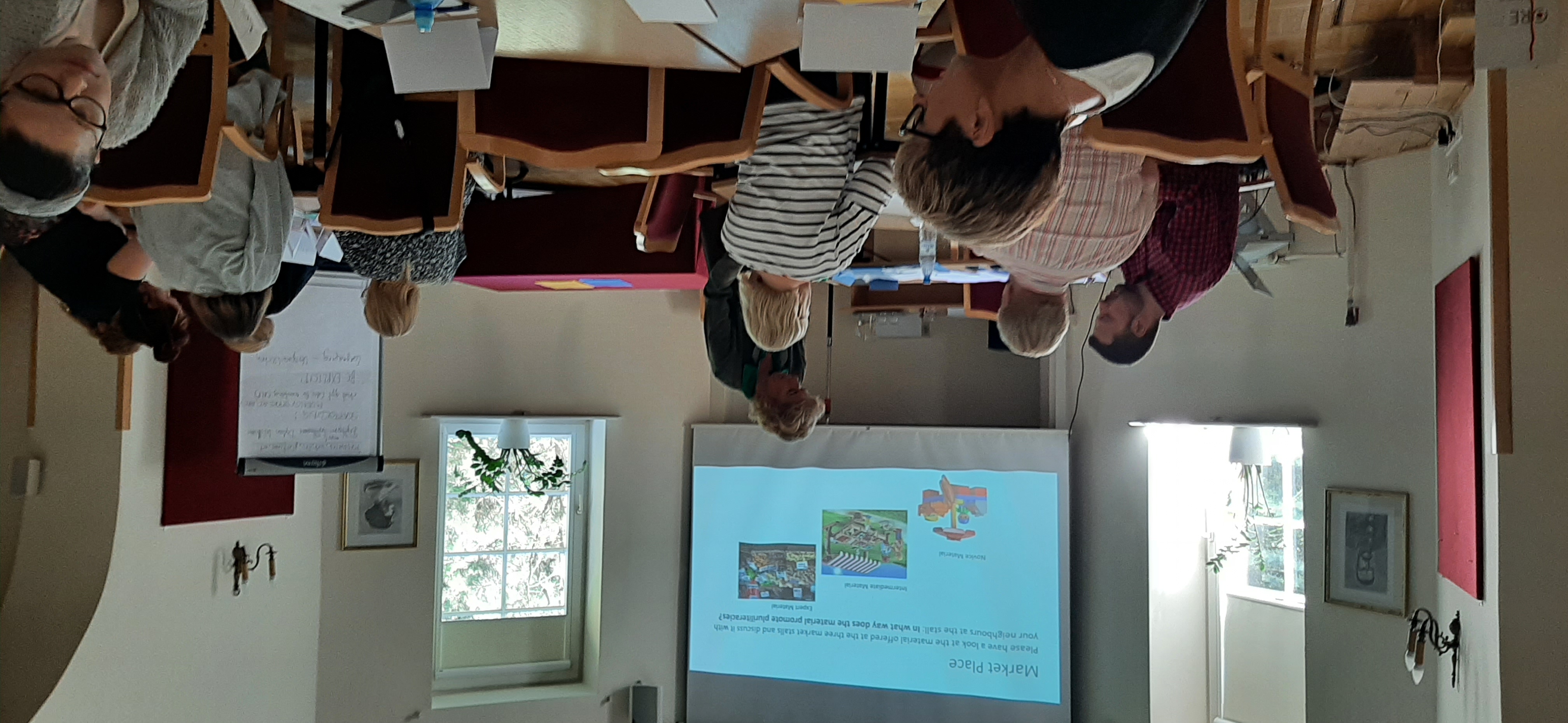

16.03.2023
“Diving into deep learning”: ECML national support event in Belgium (Brussels, 6 March 2023) – Vlaamse CLIL-studiedag
The keynote address “Diving into deep learning” looked at a variety of challenges teachers have experienced with CLIL and Pluriliteracies teaching in their classroom, the pedagogical practices they tried to put into place and the impact they had on their teaching and their students’ learning. In order for deep learning to occur, it is important first to co-construct knowledge with students and to ensure the language is accessible to them so they can understand and learn at the appropriate cognitive level. It is also essential to teach students the language that is needed to bring them to the level where they can demonstrate their understanding by producing texts and discussing new ideas and concepts without any scaffolding.
The two workshops “CLIL in Practice” and “Pluriliteracies in Practice” looked at some of the difficulties CLIL students often encounter with the 4Cs (Content, Communication, Cognition and Culture) and with the different disciplinary literacies. At the event participants examined and took part in concrete and practical CLIL activities that can help their students. All the activities undertaken are easily adaptable to individual classroom settings.
Dunja Chamberlain
ECML expert
01.12.2022
ECML’s workshop in Belgium on the Use of ICT in support of language teaching and training (17-18 November 2022)
Date: 17-18 November 2022
Venue: Herman Teirlinck building of the Flemish authorities, Brussels, Belgium
Local organiser: Fauve Van den Berghe
ECML experts: Joseph Hopkins and Jackie Robbins, Spain
Participants: 26 language teachers of secondary education, teacher trainers and pedagogical counsellors for secondary education
The ECML’s workshop offers valuable tips & tricks on the Use of ICT in support of language teaching and learning. Knowing the inventory of ICT tools and open educational resources of ECML is a must for every teacher (educator) in the field of language education. Particularly beneficial is that the ECML constantly updates the inventory, so it is never outdated with old or dead links. Existing tools that change their policy and no longer offer useful free educational options are deleted from the list. A simple search tool allows the user to find the digital tools that best serve the goals he or she has in mind for a class.
The added value of this hands-on workshop is that different ICT tools are actually being tried out in small groups of participants through the creation of new digital language content. By doing so, participants discover – with the professional guidance and support of experienced ECML trainers – what are the do’s and don’ts and which are the conditions for making effective digital learning take place.
Fauve Van den Berghe
Flemish version
Deze ECML-workshop biedt waardevolle tips & tricks voor het gebruik van digitale leermiddelen in een taalles. De inventory of ICT tools and open educational resources of ECML is een must-know voor elke beginnende of ervaren leraar of teacher-trainer werkzaam binnen talenonderwijs. Bijzonder handig is dat ECML de inventaris permanent screent en updatet, waardoor oude of niet-werkende links tijdig verwijderd worden en de lijst steeds actueel blijft. Bestaande ICT-tools die hun beleid veranderen en hun gratis educatieve opties na verloop van tijd beperken, worden uit de lijst verwijderd. Via een eenvoudige zoekfunctie kan de gebruiker digitale tools vinden die het best beantwoorden aan de doelstellingen die hij voor een les in gedachten heeft.
De toegevoegde waarde van de praktijkgerichte workshop is dat verschillende ICT-tools daadwerkelijk worden uitgeprobeerd in kleine groepen van deelnemers die samen nieuwe digitale content creëren voor een taalles. Hierdoor ontdekken de deelnemers – onder de professionele begeleiding van ervaren ECML-trainers – wat do's en don'ts zijn bij het vormgeven van digitale inhoud en wat de voorwaarden zijn om effectief digitaal taal-leren te laten plaatsvinden.
Fauve Van den Berghe
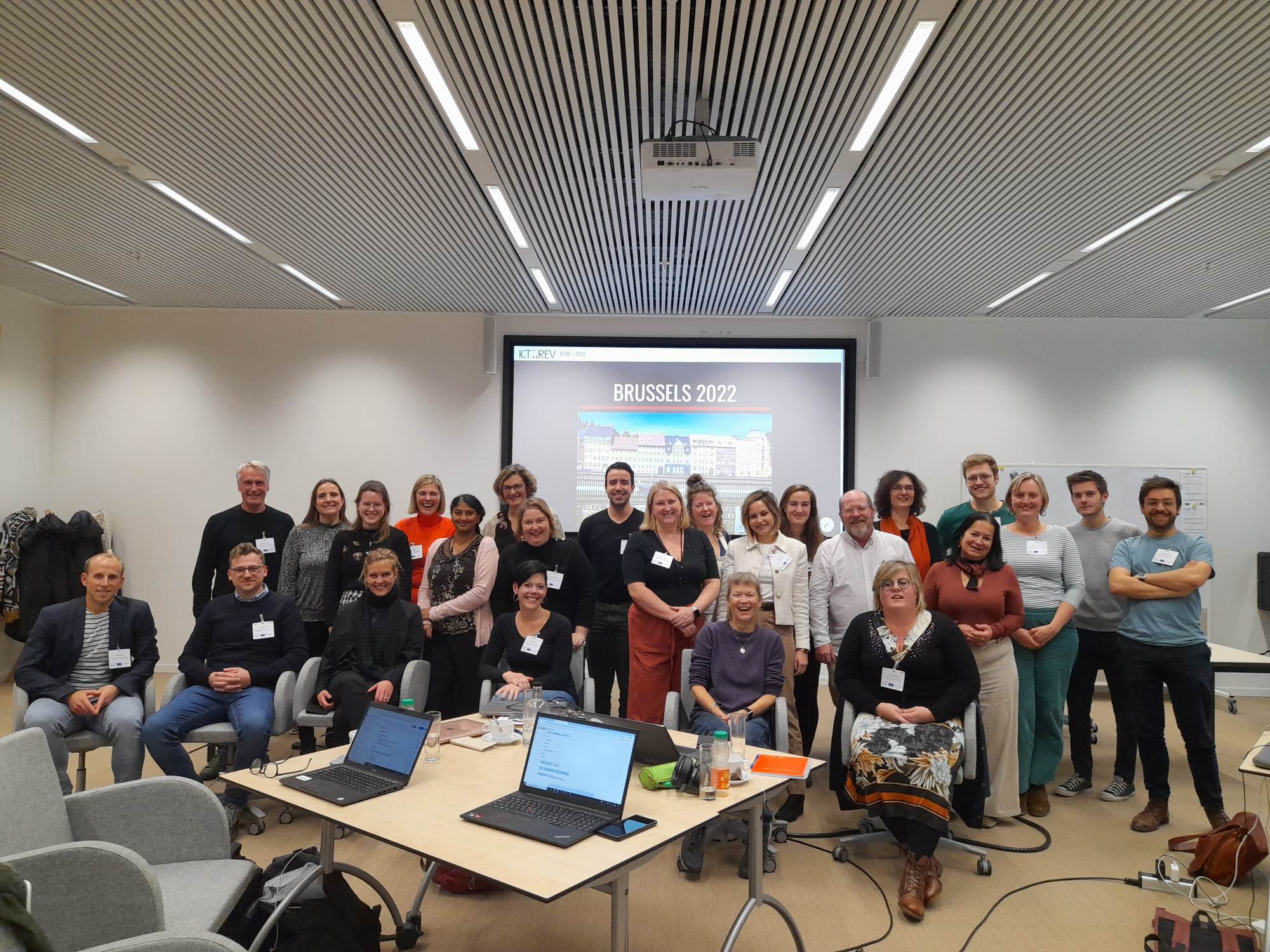
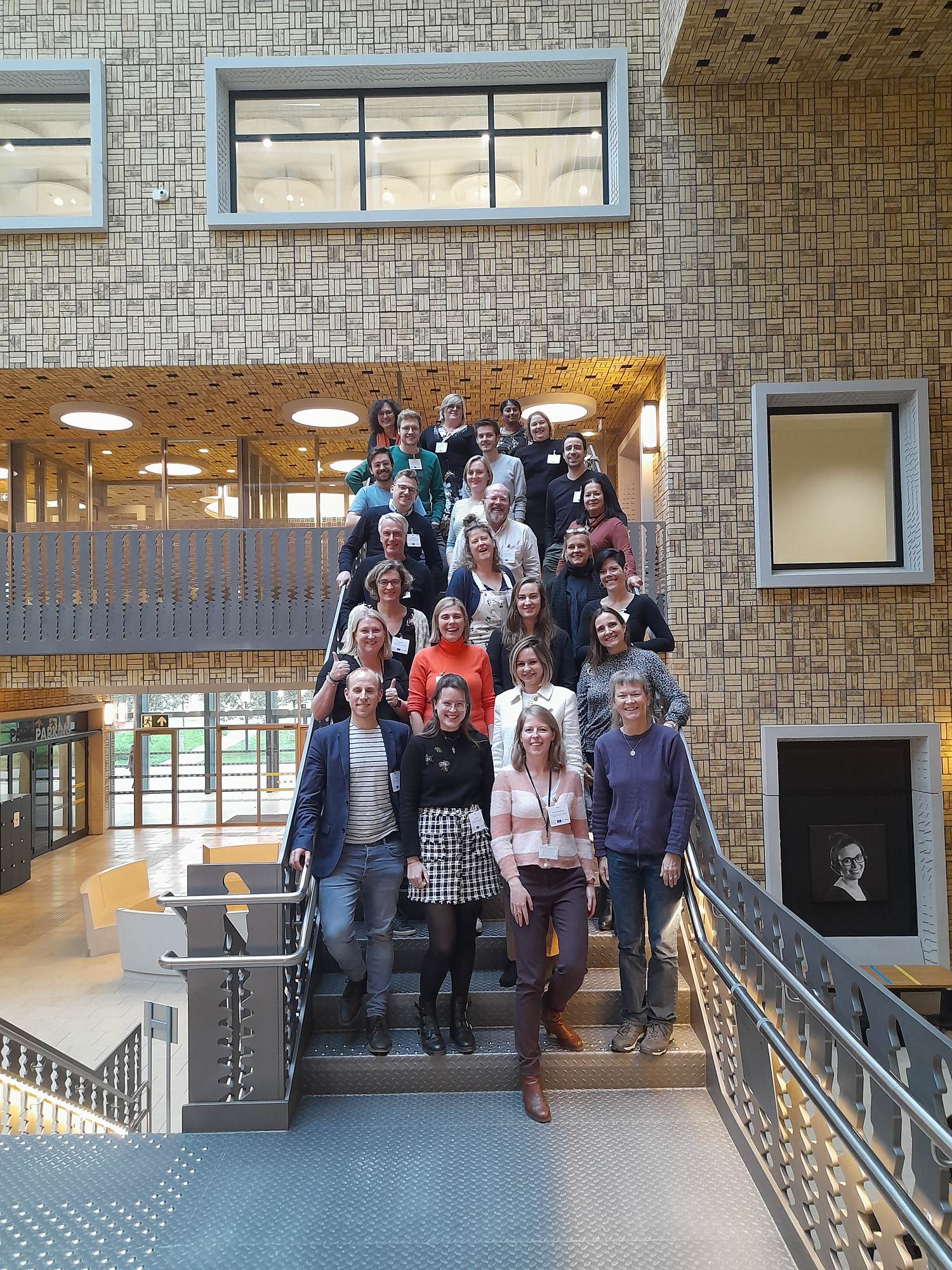
17.08.2021
Belgium becomes a member state of the ECML!

Belgium has become the 34th member state of the Enlarged Partial Agreement on the European Centre for Modern Languages!
The Belgian authorities notified the Secretary General of the Council of Europe, Marija Pejčinović Burić, of the country’s accession on 20 July 2021.
Belgium, which is one of the founder members of the Council of Europe, has been invited to nominate ECML national contacts and will henceforth be able to fully participate in the Centre’s programme of activities.
Belgium is set to host its first activity as an official member state of the ECML on 7-8 October in Brussels - a "Supporting Multilingual Classrooms" national training event, wihin the framework of the Centre's joint action with the European Commission.